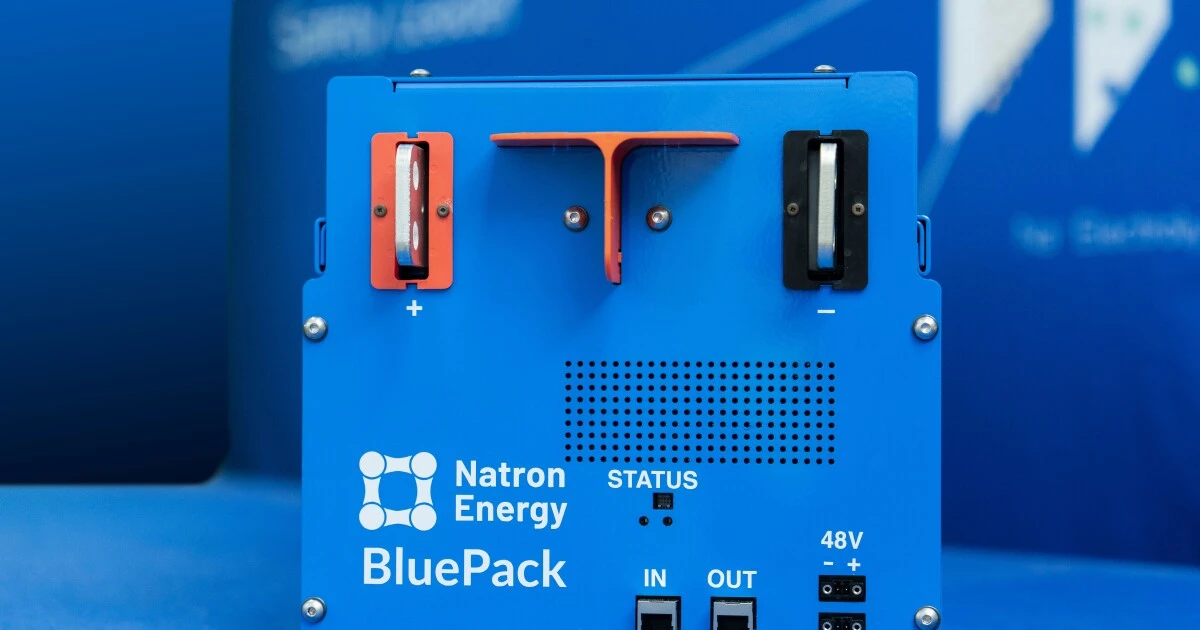- cross-posted to:
- upliftingnews@lemmy.world
- cross-posted to:
- upliftingnews@lemmy.world
It’s so rare to actually see a new battery tech exit the lab and enter production. Always seems like there’s 10,000 new up and coming breakthroughs in battery technology, but none ever leave the workbench.
While Na-ion batteries don’t have the energy density of Li-ion, they make up for it with many other factors such as more abundant source materials, increased safety, higher charge/discharge currents, and increased number of charge cycles.
Slashdot summary:
Not only is sodium somewhere between 500 to 1,000 times more abundant than lithium on the planet we call Earth, sourcing it doesn’t necessitate the same type of earth-scarring extraction. Even moving beyond the sodium vs lithium surname comparison, Natron says its sodium-ion batteries are made entirely from abundantly available commodity materials that also include aluminum, iron and manganese. Furthermore, the materials for Natron’s sodium-ion chemistry can be procured through a reliable US-based domestic supply chain free from geopolitical disruption. The same cannot be said for common lithium-ion materials like cobalt and nickel.
Sodium-ion tech has received heightened interest in recent years as a more reliable, potentially cheaper energy storage medium. While its energy density lags behind lithium-ion, advantages such as faster cycling, longer lifespan and safer, non-flammable end use have made sodium-ion an attractive alternative, especially for stationary uses like data center and EV charger backup storage. […] Natron says its batteries charge and discharge at rates 10 times faster than lithium-ion, a level of immediate charge/discharge capability that makes the batteries a prime contender for the ups and downs of backup power storage. Also helping in that use case is an estimated lifespan of 50,000 cycles.



Before anyone complains about energy density of these being less than lithium, the applications where these are used would reduce the demand for lithium, making lithium cheaper and/or more available for other purposes where sodium-ion wouldn’t work.
For anyone wondering how the density actually compares, it seems that sodium batteries are a bit more than half the energy density of the best lithium batteries, but are a less mature technology so that may improve over time.
Judging from that graph, it looks like the sodium ion batteries are about as energy dense as Li-ion was in 2020, which is far from useless. Li-ion may still be the best but at a point, there’s “good enough” for many applications (eg cellphones) if the price is low enough.
These aren’t going to shine as “I want to power my rc plane” batteries, but as someone else said, “[a house-powering battery] can be as large as it needs to be and buried in the back yard”
I’d love a giant sodium battery in a bunker that gathers energy from my wind/solar setup and powers everything without needing to connect to the US power grid.
As long as I can service my own windmill and panels with extra parts (I’m a big believer in both “have a backup” and “two is one and one is none” so always keep 3 spares of things around) I’m set on power during events that would shut down the neighbors.
The lower cost (and battery cost has been lowering drastically for many years based on my own RC dealings) will allow for mass-storage at low prices.
Opponents of renewable energy are running out of excuses, so they have to grasp at straws.